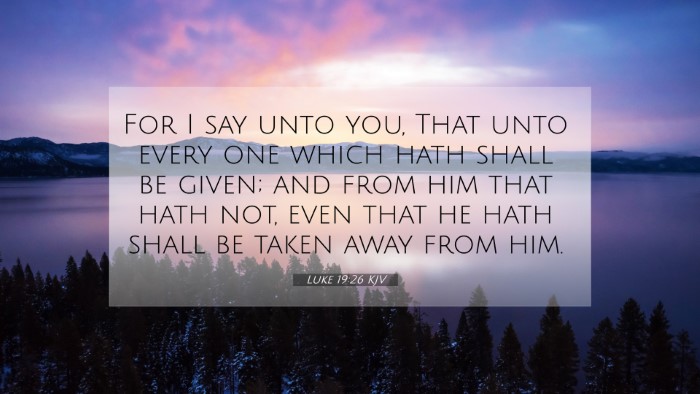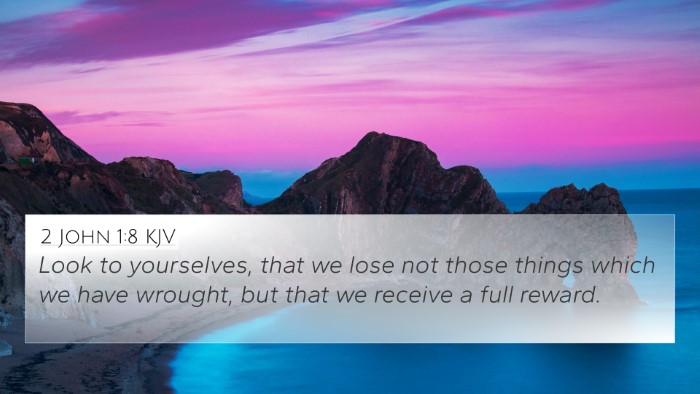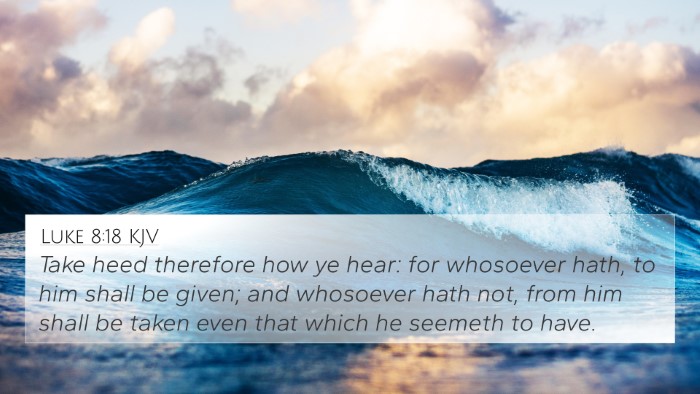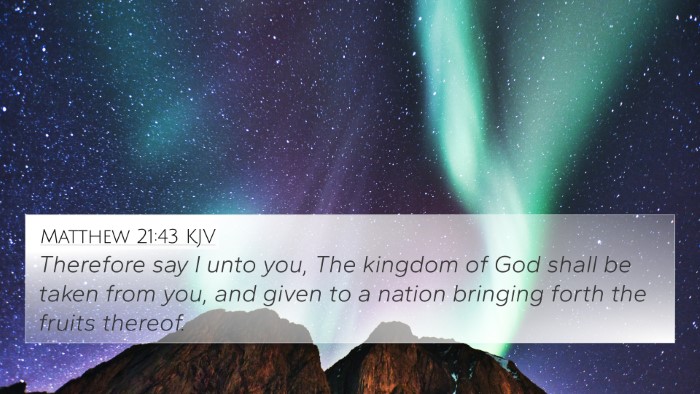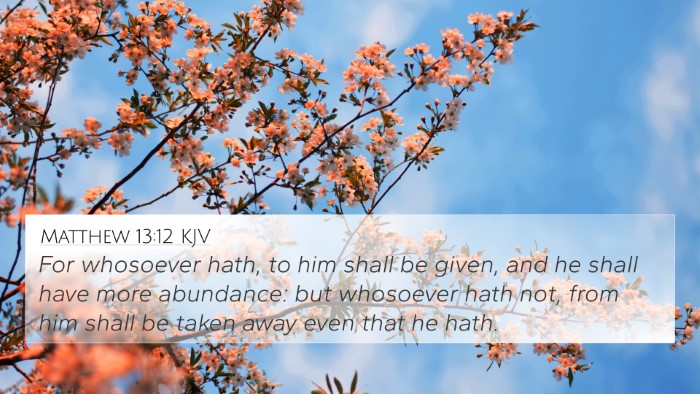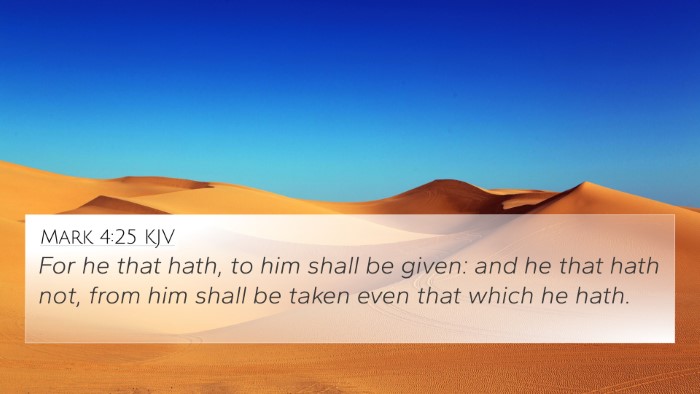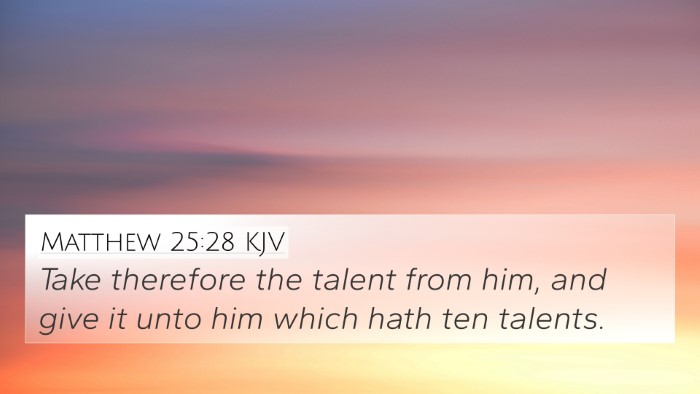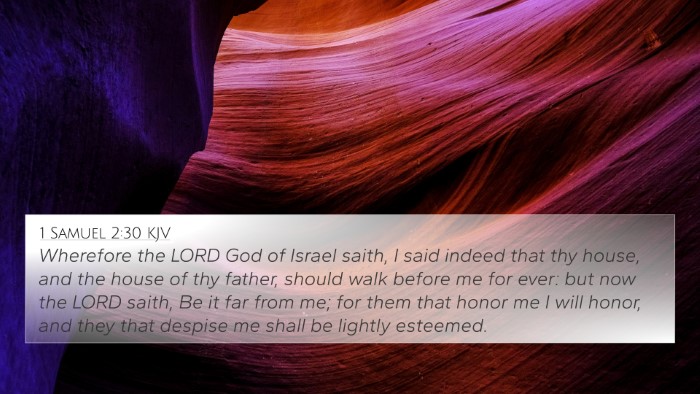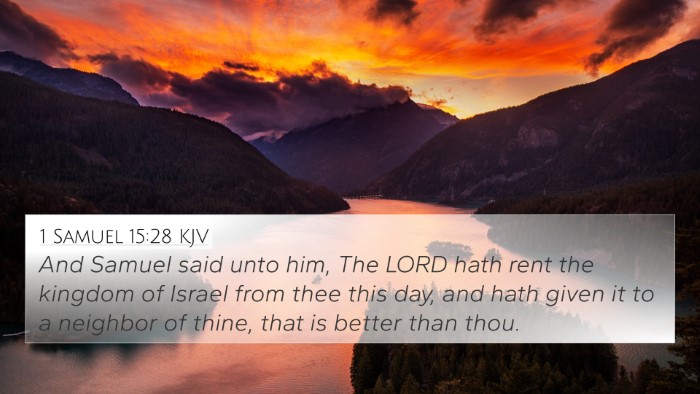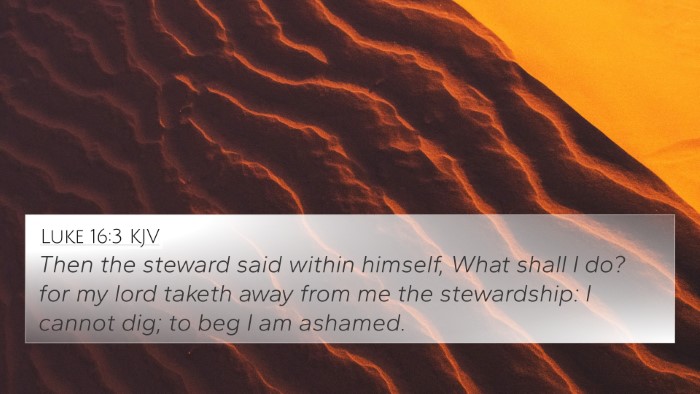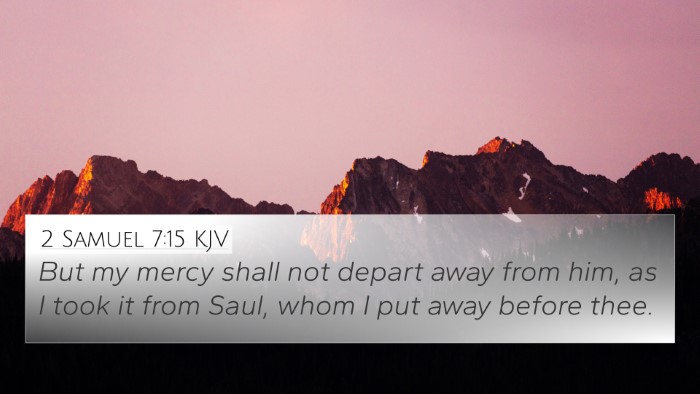Understanding Luke 19:26
Luke 19:26 reads: "For I say unto you, That unto every one which hath shall be given; and from him that hath not, even that he hath shall be taken away from him." This verse serves as a powerful teaching on the implications of stewardship, knowledge, and the divine order of reward and consequence.
Contextual Background
This verse is situated within the Parable of the Ten Pounds, where Jesus illustrates the importance of using one's God-given resources wisely. The broader context relates to the kingdom of God and the expectations placed upon believers.
Insights from Commentaries
Matthew Henry's Commentary
Henry emphasizes that this verse points out the principle of returning a gain to the Master. The faithful servant is rewarded, while the unproductive servant faces consequences. This reflects the teaching that God expects a return on the gifts and opportunities He provides. The unprofitable servant's fear led to inaction, which ultimately resulted in loss.
Albert Barnes' Notes
Barnes elaborates on the idea that what one possesses spiritually and materially is subject to stewardship. Those who effectively utilize their gifts (whether talents, abilities, or resources) in service of God and others will be granted more. Conversely, neglect and lack of effort lead to loss. This principle underlines God's justice and the order of His kingdom.
Adam Clarke's Commentary
Clarke notes that this verse also functions as a moral principle, suggesting that abilities, resources, and blessings are amplified through diligent use or diminished through neglect. This reflects the broader Biblical theme of accountability, urging believers to examine how they are using what they have received from God.
Thematic Connections in Scripture
Luke 19:26 aligns with various other Bible verses that elaborate on similar themes of stewardship, accountability, and reward:
- Matthew 25:29 - "For to everyone who has will more be given, and he will have an abundance." This verse reinforces the same principle of increasing responsibility based on faithfulness.
- Mark 4:25 - "For to the one who has, more will be given, and from the one who has not, even what he thinks that he has will be taken away." This echoes the sentiment of loss due to inaction.
- Luke 8:18 - "Take care then how you hear, for to the one who has, more will be given, and from the one who has not, even what he thinks that he has will be taken away." Illustrating the importance of right listening and response.
- James 1:5 - "If any of you lacks wisdom, let him ask of God, who gives generously to all without reproach." This emphasizes the need to seek divine assistance in using one’s gifts wisely.
- Galatians 6:7 - "Whatever one sows, that will he also reap." Highlights the principle of cause and effect in one’s actions.
- Revelation 22:12 - "Behold, I am coming soon, bringing my recompense with me, to repay each one for what he has done." This accentuates the idea of divine judgment according to one’s actions.
- 1 Peter 4:10 - "As each has received a gift, use it to serve one another, as good stewards of God's varied grace." This provides a directive on the importance of stewarding spiritual gifts.
Practical Applications
The teachings derived from Luke 19:26 encourage believers to:
- Evaluate their use of spiritual gifts and resources.
- Actively engage in service and stewardship.
- Recognize the consequences of failing to utilize God-given opportunities.
- Seek growth in understanding and ability through prayer and study of scripture.
Cross-Referencing Biblical Texts
Cross-referencing supports deeper study, revealing connections between seemingly disparate passages. For instance, comparing Luke 19:26 with the Parable of the Talents in Matthew 25:14-30 shows how Jesus consistently teaches about the value of using one’s resources wisely.
Tools for Bible Cross-Referencing
For believers wanting to explore the connections between Bible verses, various tools are available such as:
- Bible concordances
- Cross-reference Bible guides
- Online resources and study methods for effective Bible cross-referencing
Finding Bible Cross-References
To discover cross-references related to any specific verse, consider:
- Utilizing a Bible concordance which lists significant words and their locations throughout scripture.
- Studying thematic connections to identify overarching messages in the Bible.
- Participating in group Bible studies that focus on inter-Biblical dialogue.
Conclusion
In summary, Luke 19:26 serves as a vital reminder of the importance of stewardship and accountability in the life of a believer. Drawing from the insights of renowned commentaries, and aligning with related scriptural references, we see a clear call to engage actively in our faith.
As we reflect on the implications of this verse, may we strive to utilize our gifts and resources to their fullest, ensuring we are good stewards in the Kingdom of God.


